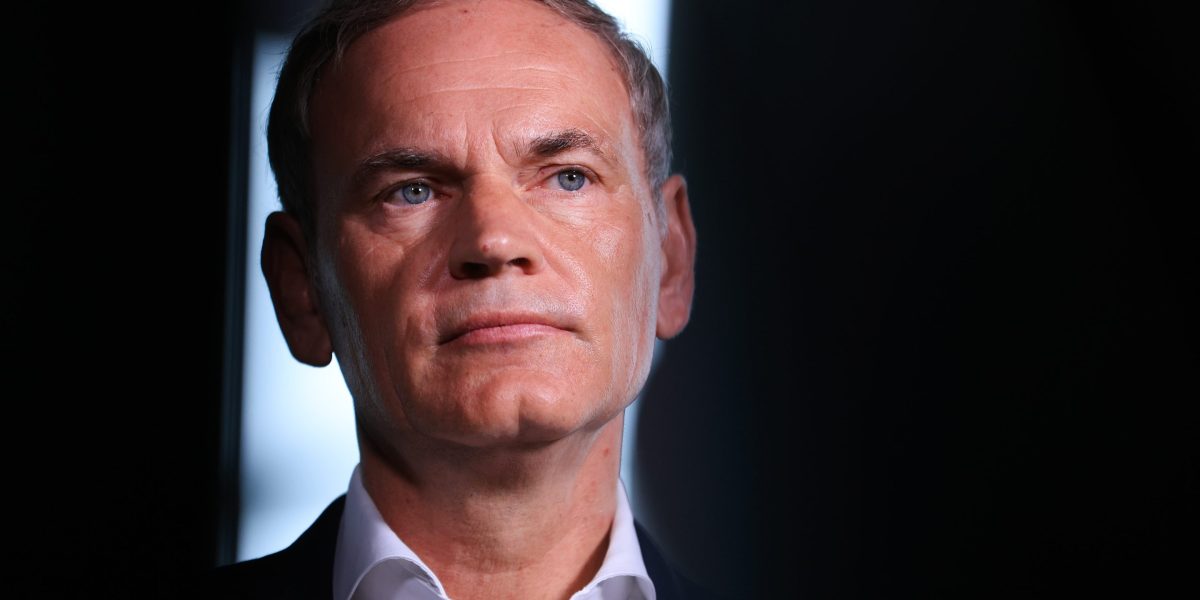Oliver Blume wants to make a deal. The CEO of Volkswagen Group, the world’s second-largest carmaker, is prepared to put a minimum of $10 billion on the table in exchange for lower tariffs levied by the Trump administration.
Under the proposal, for every dollar that Volkswagen invests, it would like to receive in return an equal amount offset against its tariff bill. The VW boss is only waiting on the European Commission to reach a deal on behalf of the entire EU so he then knows what precise rates he can expect on goods exported to the U.S. market.
“Every company has got a special situation in the U.S., and therefore I think it should be possible to add a specific deal on company level,” Blume said on Friday, after revealing his company just paid $1.4 billion to the U.S. customs authorities. “We can offer huge investments.”
White House spokesman Kush Desai told Fortune in a statement: “The Trump administration is always ready to encourage and support new investment into the United States. President Trump, however, has been clear: The best way to avoid tariffs is to build your product in the USA.”
Volkswagen in fact already operates a U.S. assembly plant in Chattanooga, where it builds the Atlas SUV and ID.4 electric crossover. It is currently investing $2 billion in a new site in Blythewood, S.C., where it is planning a new family of electrified vehicles under the resurrected Scout brand first launched by defunct manufacturer International Harvester. VW could not confirm whether this figure was included in the $10 billion.
Typically, trade policy falls under the responsibility of Congress. But the White House capitalized on a legal loophole to seize control over tariff rates by declaring the import of foreign-built passenger cars poses a demonstrable risk to national security. The Trump administration argues the U.S. must rebuild a domestic manufacturing base, now gutted by the offshoring of jobs, that can ward off potential military threats.
Bilateral deals could prove costly in the long run
A special quid pro quo exemption or carve-out negotiated bilaterally between a corporation and a federal government is not typical under the rules governing World Trade Organization members like the United States.
Thanks to the two previous U.S. administrations, the WTO’s ability to settle and enforce trade disputes has been neutralized as its highest court—known as the Appellate Body—was effectively dismantled. At the end of 2019, Trump blocked appointments needed to achieve a quorum in a tactic that was later adopted by President Biden as well.
Regardless of the legal issue, the idea that corporations could sidestep their national governments by lining up, one after the other, to each strike their own special deal with the White House has experts concerned that the rules of trade could end up becoming permanently chaotic.
“This is a new development that is anything but positive, since it introduces unpredictability. In the long run it could prove very expensive when it comes to overall prosperity,” says Julian Hinz, director of the Trade Research Center at Germany’s Kiel Institute for the World Economy.
Guidance cut
“The great thing about the rules-based system is that they were valid for everyone—you didn’t have to negotiate with every conceivable economic actor,” the global trade economist told Fortune. “It might offer a temporary advantage over your competitors, but it’s extremely myopic.”
Earlier on Friday the company behind VW, Audi, and Porsche slashed its 2025 guidance across the board, reducing expectations for everything from its annual sales revenue and operating margin through to even how much cash it has at year-end.
And the chief culprit, according to Volkswagen Group, is the 27.5% duty levied by the president on all vehicles and car parts entering the United States. The gross sum from tariffs is estimated to wipe a full two percentage points off its operating margin should they remain at current levels.
Once planned mitigation efforts are factored in this would result in a 4% operating profit margin. In a more optimistic scenario based on tariffs of just 10%, it expects that number to hit 5%. Previously it had guided for a range of 5.5% to 6.5% versus 5.9% in 2024.
Its tariff bill from U.S. Customs and Border Protection ballooned from €100 million ($117 million) in the first three months of this year to €1.2 billion in the second quarter alone. That means the $1.4 billion in equivalent U.S. currency it paid exceeds the $1.1 billion that Detroit rival General Motors paid during the past three months.
Update: July 25, 2025: This article has been updated with a comment from the White House.
